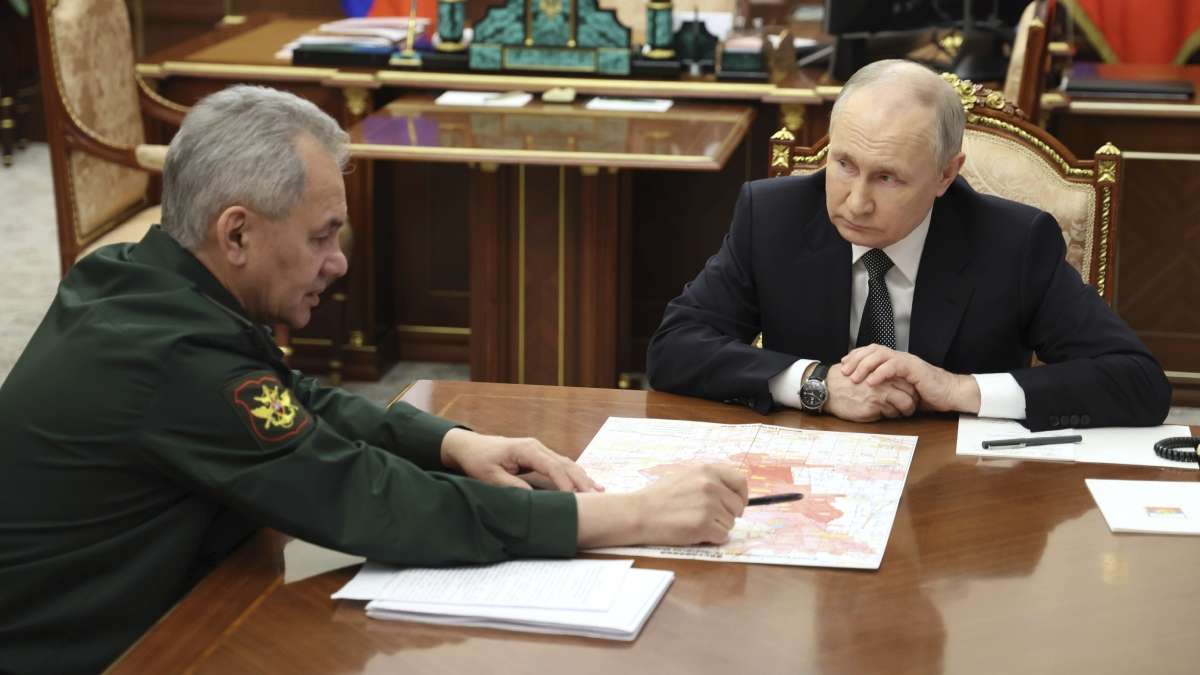Putin denies US claims, says Russia has no intention of sending nuclear weapons in space
[ad_1]

Moscow: Russian President Vladimir Putin on Tuesday said that Moscow has no intention of deploying nuclear weapons in space and that the country has only developed space capabilities similar to that of the US, refuting Washington’s claims that Russia has developed a nuclear-armed anti-satellite weapon. The White House, however, said that such a weapon is not operational as of now.
The White House last week said Russia has obtained a “troubling” emerging space-based weapon that could be used against US satellites. The Republican head of the House Intelligence Committee, Mike Turner, has urged the Biden administration to declassify information about what he called a serious national security threat.
“Our position is quite clear and transparent: we have always been and remain categorically opposed to the deployment of nuclear weapons in space. Just the opposite, we are urging everyone to adhere to all the agreements that exist in this sphere,” said Putin during a meeting with his defence minister Sergei Shoigu.
The Russian President asserted that Russia has only developed space capabilities that “other nations, including the US have”. “And they know it. We haven’t deployed any nuclear weapons in space or any elements of them to use against satellites or to create fields where satellites can’t work efficiently,” he added.
Putin on talks with the US
Meanwhile, Shoigu alleged that the White House could have made the allegations of a new Russian space capability in order to force Congress to support aid for Ukraine and also encourage Moscow to re-enter nuclear arms control talks that Russia has suspended amid the tensions with the US over Ukraine. Kremlin spokesperson Dmitry Peskov had also made similar claims earlier.
Putin didn’t rule out possible future contacts with the US, but reaffirmed his view that Washington’s push for Russia’s defeat in Ukraine makes them impossible for now. “The US and the West, for one thing, are calling for Russia’s strategic defeat, while, on the other hand, they would like to have a dialogue on strategic stability, pretending that those things aren’t connected,” he said. “It won’t work”.
What would happen if nuclear weapons are used?
If Russia indeed uses nuclear warheads to destroy US satellites, it could lead to a wide range of consequences. The use of such weapons could result in the failure of electrical and water systems in the US and aviation, rail and car traffic could also come to a standstill. Moreover, it can also disrupt cellphone services. These concerns have been heightened by recent reports suggesting Russia’s interest in space-based nuclear weapons.
The White House said it would look to engage the Russians directly on the concerns. Even as the White House sought to assure Americans, national security spokesman John Kirby acknowledged it was a serious matter. “I don’t want to minimize the potential here for disruption,” Kirby said.
Kirby also said the deployment would violate the international Outer Space Treaty, but declined to comment on whether the weapon is nuclear-capable. The treaty signed by more than 130 countries, including Russia, prohibits the deployment of “nuclear weapons or any other kinds of weapons of mass destruction” in orbit or the stationing of “weapons in outer space in any other manner.
Both Russia and the US have used nuclear warheads in space, when the two countries, at a bitter confrontation during the peak of the Cold War in the 1960s, knew relatively little about how new weapons of mass destruction would act in the Earth’s atmosphere. They signed a nuclear test ban treaty in 1963 to prohibit nuclear weapons from being used in space.
(with inputs from AP)
ALSO READ | Can Russia use nuclear warheads to destroy US satellites in space? Know here
[ad_2]
Source link
